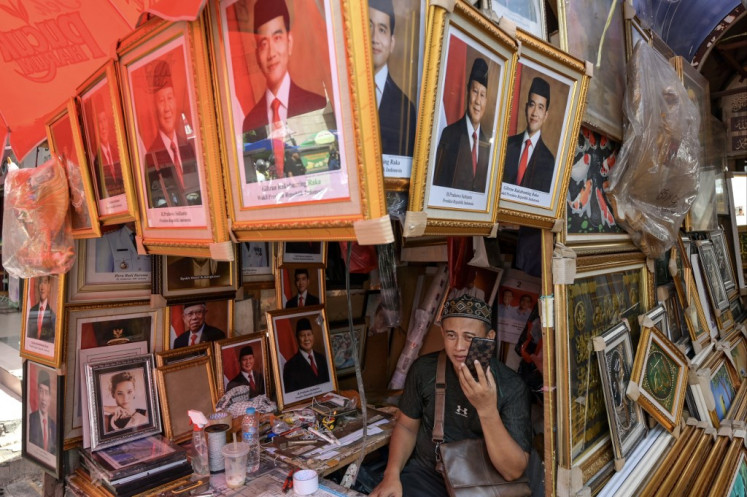Post-haj: Zero tolerance against intolerance should continue
In the haj, there is no significant differentiation based on sects, gender or color.
Change Size
 Night prayers: People gather to pray at Al-Haram Mosque in Mecca. (JP/Endy M. Bayuni)
Night prayers: People gather to pray at Al-Haram Mosque in Mecca. (JP/Endy M. Bayuni)
L
span id="docs-internal-guid-d5565c3c-7fff-8d75-8836-20700bb3b2b7">Last month Indonesia’s 221,000 pilgrims performed a major form of worship in Islam, the haj (pilgrimage) which is mandatory for all able Muslims. They have returned to their respective regions throughout Indonesia bringing their own memories. They had left their families and friends for about 40 days and are reunited with a new soul and spirit.
We hope that they can return by bringing goodness to society. If not, then they destroy what they built during the haj. As God said in the Surah An Nahl (The Honey Bees) “And be not like a woman who breaks into untwisted strands the yarn which she has spun, after it has become strong.”
We are told that some markers of pilgrimage which is accepted by God (Indonesianized from the Arabic, haji mabrur) include joy of the heart and of the face. But the most important thing is that they return home with goodness. A great Muslim ascetic Hasan al-Basri was once asked, “What is meant by al-hajj al-mabrûr?” and he answered, "You return [from the pilgrimage] in a state of zuhd (ascetic) from life of the world and are happy with [knowledge of] the afterlife".
How wonderful it would be if pilgrims return to their families, communities, and regions with a better moral appearance, a more solid mind and various behaviors that invite God’s favor. How wonderful if, after returning, the pilgrims behave well in daily relationships with colleagues, in association with their children and have a good heart.
Hopefully the haj have those good behaviors consistently and continuously. As stated in a hadith or Prophet’s saying, “Verily, the most beloved charity by God is the most continued one, even a little.”
One value that must be implemented continuously by someone who has performed the haj is tolerance. During the haj Muslims from various groups, professions, characteristics and different races interact with humans from various countries, languages and habits. It is a great momentum to internalize love, knowing each other, brotherhood, and tolerance.
In the haj, there is no significant differentiation based on sects, gender or color . Haj is a declaration of the principles of tolerance, equality and justice among Muslims. There is no difference between Arabs and non-Arabs except in terms of piety.
If an individual errs unintentionally, he will not be responded in a way that suits the mistake, but rather with absolute pardon. There is no difference between the Sunni, the Shiites and other sects. There is a unity of the Islamic ummah. All are seeking the forgiveness of the Oft-Forgiving and the Most Merciful Lord. All are hoping to return from the Holy Places as pure as the day they were born.
When returning to his or her country, a pilgrim should have become accustomed to tolerance. Pride in being Muslim means doing good (ihsân) to humanity as a whole, even to non-Muslims.
Can’t this spirit continue, even if only for a while, after the return of pilgrims from their blessed pilgrimage?
We live in a highly diverse country. To achieve Indonesia’s goals as a prosperous, intelligent, and orderly nation as mandated in the 1945 Constitution, Muslims’ participation are vital in spreading the seeds of tolerance amid society.
Every year at least one of every 1,000 Indonesian Muslims gets the chance to perform the haj. In additions, tens of thousands of others have the opportunity to carry out umrah, the minor pilgrimage. If only five to ten people out of the above 1,000 can spread tolerance, God willing, intolerance will be significantly reduced in our nation.
***
The writer is Dean, Faculty of Da’wah at the Sultan Maulana Hasanuddin State Islamic University (UIN) in Serang, Banten.
Your Opinion Matters
Share your experiences, suggestions, and any issues you've encountered on The Jakarta Post. We're here to listen.
Thank you
Thank you for sharing your thoughts. We appreciate your feedback.









